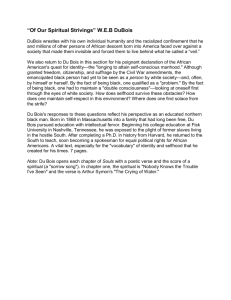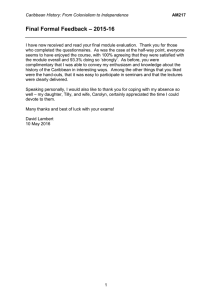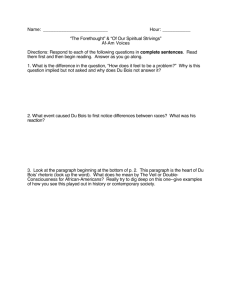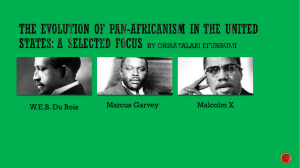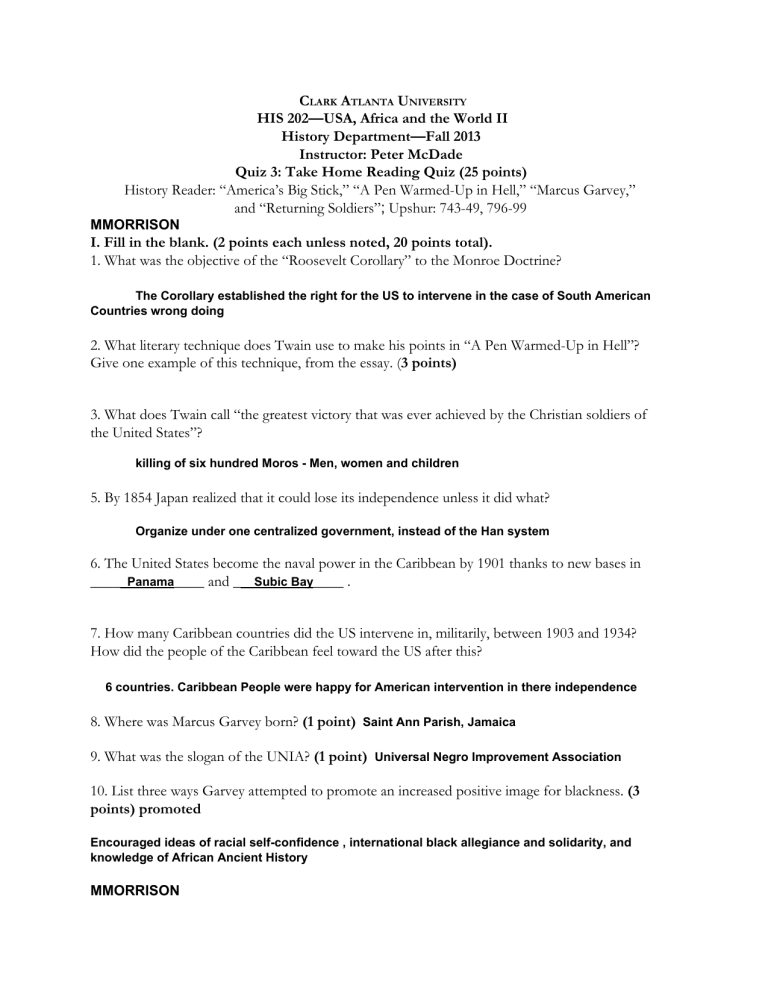
CLARK ATLANTA UNIVERSITY HIS 202—USA, Africa and the World II History Department—Fall 2013 Instructor: Peter McDade Quiz 3: Take Home Reading Quiz (25 points) History Reader: “America’s Big Stick,” “A Pen Warmed-Up in Hell,” “Marcus Garvey,” and “Returning Soldiers”; Upshur: 743-49, 796-99 MMORRISON I. Fill in the blank. (2 points each unless noted, 20 points total). 1. What was the objective of the “Roosevelt Corollary” to the Monroe Doctrine? The Corollary established the right for the US to intervene in the case of South American Countries wrong doing 2. What literary technique does Twain use to make his points in “A Pen Warmed-Up in Hell”? Give one example of this technique, from the essay. (3 points) 3. What does Twain call “the greatest victory that was ever achieved by the Christian soldiers of the United States”? killing of six hundred Moros ­ Men, women and children 5. By 1854 Japan realized that it could lose its independence unless it did what? Organize under one centralized government, instead of the Han system 6. The United States become the naval power in the Caribbean by 1901 thanks to new bases in _____Panama____ and ___Subic Bay____ . 7. How many Caribbean countries did the US intervene in, militarily, between 1903 and 1934? How did the people of the Caribbean feel toward the US after this? 6 countries. Caribbean People were happy for American intervention in there independence 8. Where was Marcus Garvey born? (1 point) Saint Ann Parish, Jamaica 9. What was the slogan of the UNIA? (1 point) Universal Negro Improvement Association 10. List three ways Garvey attempted to promote an increased positive image for blackness. (3 points) promoted Encouraged ideas of racial self­confidence , international black allegiance and solidarity, and knowledge of African Ancient History MMORRISON Short answer. (5 points) MMORRISON Write a coherent summary of the problems Du Bois saw waiting for the “Returning Soldiers.” Given all those problems, did Du Bois think it was right for African-Americans to volunteer to fight? Why, or why not? The basic problem Du Bois saw was that while Africa Americans were fighting for the freedom of the French and fighting to uphold democracy in far away lands; the African American soldiers were being forced to return to an unjust America. That did not fight for there freedom or democracy. Du Bois felt it was our right to fight, and that as Americans it was our duty ­ but that we should also fight for our freedoms / rights upon return
